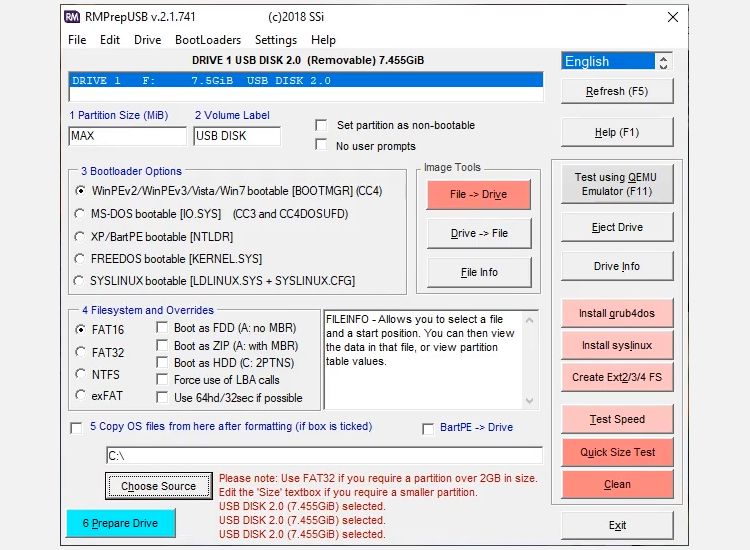

- #BIST ISO BURNER TO USB HOW TO#
- #BIST ISO BURNER TO USB INSTALL#
- #BIST ISO BURNER TO USB 64 BIT#
- #BIST ISO BURNER TO USB VERIFICATION#
- #BIST ISO BURNER TO USB WINDOWS 8#
[ Mar 25 09:39:06 "start" method requested temporary disable: "vbiosd is [ Mar 25 09:36:06 Executing start method ("/lib/svc/method/svc-vbiosd See: /var/svc/log/system-vbiosd:default.log Reason: Temporarily disabled by an administrator. Svc:/system/vbiosd:default (BIOS call emulation) The failure is vbiosd on which gdm depends.
#BIST ISO BURNER TO USB INSTALL#
"pkg install solaris-desktop" should get graphics but Solaris can Working through install I can indeed boot a basic Solaris 11.2 usingĪfter installing in UEFI text mode Solaris will work under UEFI in text What I said above is true but incomplete, hence misleading and Mint Xfce 17.1 because it works and Solaris 11.2 because.
#BIST ISO BURNER TO USB WINDOWS 8#
I have installed triple boot of: Windows 8 because it's there, Linux Some device or lack of support for some devices. I don't think it is UEFI related at all, but rather an issue with If it hangs, F1-A should gets you the kernel debugger but in certainĬases it the kernel hangs were the keyboard's interrupts aren't You can then figure out where it hangs you might want to lookĪt the VT-x/VT-d options while Solaris should boot fine with Try booting by adding "-kv" to the boot command line the kernelĭebugger will be loaded (-k) and the output will be verbose (-v). So I think it is something in your hardware that gives Solaris issues. I have no issues doing the same (all modern systems are UEFI systems), Trying boot using USB on a UEFI system? And did he/she succeed. Is it possible that someone faced similar issue He same thing (two lines on top of screen) and nothing.

If I didn't boot with EFI it would perform a legacy bios installation provided that disk partition layout is not gpt and using legacy boot. When I booted Windows with EFI I could perform EFI installation and same happened with several Linux distro. Reason of thinking like that is from some paste experience. This would mess up because all other OSs in the machine are using EFI boot. Because I think it might trigger a legacy bios type bootloader installation( such as copying the solaris bootloader 448 bytes to active partition like we used to do when there were no EFI). Tried dd-ing the image from host OS: I can boot that image only by enabling legacy boot. Exactly same result: two lines on top of screen and that's where it stays. Try the S11.2 text installer image and also try dd'ng the image I have prepared the usbmedia using a virtual box installation of Solarisġ1.2 Here's the output of the command of preparing the disk, Is it possible that someone faced similar issue trying boot using USB on a UEFI system? And did he/she succeed. Why so slow file operation? Is it because I am using dynamic size parition of 20 GB on VM (given that I'm using 4 GB RAM for VM, virtual box is running on Linux Mint (64 bit) 17.1 kernel-3.18.3). It looks like following screenshot:īy the way, on the Virtual Box, to run the usbcopy command on solaris I had to copy the file from USB to solaris into home directory. In the morning I see the same thing (two lines on top of screen) and nothing. I fall asleep waiting to see if anything happens. Result is same, shows two lines and nothing.

Then it is stuck showing two lines on top of screen.(see screenshot: Loading Image. I keep UEFI enabled all the time (no legacy boot) and I am using GPT partition table on my harddisk.
#BIST ISO BURNER TO USB 64 BIT#
My machine (notebook) is 64 bit Intel Core i7 (quad core), Intel HD Graphics 4000 Usb file I used from the oracle site is: sol-11_b Number Start End Size Type File system FlagsĢ 5243kB 1281MB 1276MB primary solaris boot Sector size (logical/physical): 512B/512B The partition table as it look like after creating usb media with solaris 11.2 ISO for x86
#BIST ISO BURNER TO USB VERIFICATION#
USB Disk 8.07, 7700 MB at /dev/rdsk/c2t0d0p0 ? (y/n) yĬopying and verifying image to USB deviceįinished 1222 MB in 1338 seconds (0.9MB/s)Ġ block(s) re-written due to verification failure WARNING: All data on your USB storage will be lost. I have prepared the usbmedia using a virtual box installation of Solaris 11.2 Here's the output of the command of preparing the disk,Ġ: /dev/rdsk/c2t0d0p0 7.7 GB USB Disk 8.07 What hardware is this? Which ISO image or USB image did you use?
#BIST ISO BURNER TO USB HOW TO#
But Solaris won't.Ĭan anyone tell me what's wrong and how to fix it? I see the EFI directory in the CD missing too. All boot in this machine with gpt partition layout with EFI enabled. To confirm I tried some Linux CDs such as Linux Mint 17.1, Fedora and Ubuntu. Whether burning it to CD or USB it computer won't boot from the CD. It seems like Solaris hasn't got EFI supported ISO yet.


 0 kommentar(er)
0 kommentar(er)
